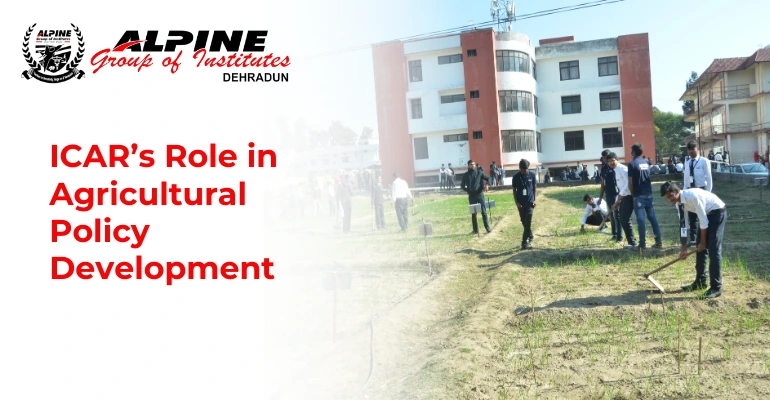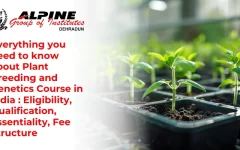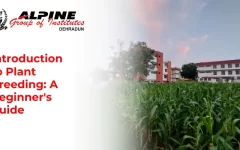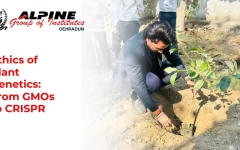ICAR’s Role in Agricultural Policy Development
2024-12-16 9:37ICAR’s Role in Agricultural Policy Development
Agriculture is the backbone of India’s economy, with more than half of the population dependent on farming and related activities. With the rapidly changing global agricultural landscape, the need for sound policies that support farmers, ensure food security, and promote rural development is more critical than ever. In this context, the Indian Council of Agricultural Research (ICAR) plays a pivotal role in shaping the future of Indian agriculture. As a premier research body, ICAR provides essential data, scientific insights, and technical expertise that inform government policy and help develop strategies for sustainable agricultural growth.
Research-Driven Policy Formation
ICAR is at the forefront of generating scientific knowledge that influences policy decisions in agriculture. The organization conducts extensive research across a range of agricultural sectors, including crop production, livestock management, water conservation, soil health, and climate change adaptation. By providing empirical data and insights, ICAR helps policymakers understand the challenges and opportunities within the agricultural sector, enabling the creation of policies that are both evidence-based and context-specific.
For instance, ICAR’s research on crop variety development, pest management, and water-efficient irrigation techniques is instrumental in designing policies that support sustainable agricultural practices. Additionally, through its agricultural economic research, ICAR provides data that guides the government’s decisions on subsidies, price support mechanisms, and trade policies.
Policy Recommendations for Rural Development
Rural development is a key priority for India, as the majority of its farming communities are based in rural areas. ICAR’s involvement in rural development policies is extensive, particularly in areas such as rural infrastructure, agricultural extension services, and skill development for farmers.
Agricultural Extension:
ICAR’s agricultural extension programs, which focus on disseminating research findings to farmers, directly contribute to the government’s rural development strategies. These programs help farmers adopt modern farming techniques, increase crop productivity, and reduce poverty in rural areas.
Skill Development and Training:
ICAR also plays a vital role in farmer education through its vast network of agricultural universities, institutes, and training programs. The data collected through these initiatives helps inform policies designed to improve the technical skills of farmers and rural entrepreneurs.
Furthermore, ICAR works with the Indian government on schemes like the National Mission for Sustainable Agriculture (NMSA) and the National Rural Employment Guarantee Act (MGNREGA), ensuring that agricultural policies support rural communities’ growth and well-being.
Ensuring Food Security Through Research and Policy Integration
Food security remains one of the most pressing issues facing India. As the population continues to grow, the demand for food increases, making it crucial to ensure a stable supply of nutritious and affordable food. ICAR’s role in supporting food security policy is significant.
ICAR’s research on crop resilience, soil fertility, and agricultural productivity helps the government design policies that aim to increase food production while minimizing environmental impact. By developing drought-resistant crop varieties, promoting sustainable farming practices, and improving pest and disease control, ICAR ensures that India’s agricultural systems are equipped to handle climate variability and the growing demands for food.
Moreover, ICAR’s data on the nutritional content of various crops has been used to shape government initiatives like the National Food Security Act, which aims to provide food at subsidized rates to millions of citizens. The organization’s work is also vital in the ongoing efforts to increase the availability of fortified and nutrient-dense foods to combat malnutrition.
Shaping Agricultural Subsidies and Support Schemes
Agricultural subsidies are a crucial tool in supporting farmers and ensuring food production at competitive prices. ICAR’s research helps the government determine which subsidies and support schemes are most effective in promoting agricultural growth and reducing farmer vulnerability.
ICAR provides evidence-based assessments that influence the design of subsidy programs for fertilizers, seeds, irrigation, and crop insurance. For example, ICAR’s research on soil health management has been critical in advocating for the subsidy of organic fertilizers and the promotion of balanced nutrient management, which is now a core component of the government’s Soil Health Management Scheme.
ICAR’s continuous monitoring and assessment of agricultural trends also help the government adjust subsidy policies to meet changing needs, such as fluctuating commodity prices, input costs, and climatic conditions.
Collaboration with the Indian Government on National Agriculture Policies
ICAR’s collaboration with the Indian government is not just limited to providing research data; it also actively participates in the formulation of national agriculture policies. A key example is its involvement in shaping the National Agriculture Policy (NAP), which outlines the strategic vision for India’s agricultural development.
Through consultations and research reports, ICAR assists in aligning agricultural policy with national goals such as:
Enhancing Productivity:
ICAR’s work on improving crop yields and livestock productivity directly informs policies that aim to boost agricultural output and reduce dependence on food imports.
Climate Change Adaptation:
As the agricultural sector faces new challenges posed by climate change, ICAR’s research on climate-resilient crops and sustainable farming practices is vital for developing policies that help farmers adapt to changing environmental conditions.
Diversification of Agriculture:
ICAR’s research on alternative crops, agroforestry, and organic farming supports the diversification of India’s agricultural sector, which is an essential policy focus for reducing over-reliance on traditional crops and enhancing farmers’ income.
Addressing Challenges in Agriculture and Shaping Future Policies:
ICAR’s research is instrumental in identifying and addressing key challenges in the agricultural sector, such as low productivity, poor soil health, water scarcity, and farmer distress. By providing valuable data on these issues, ICAR helps policymakers understand where intervention is needed most.
For example, in response to rising concerns over water scarcity and declining water tables in many regions, ICAR has researched and promoted water-efficient irrigation practices, rainwater harvesting, and drought-resistant crop varieties. These research findings have been incorporated into national water conservation policies and schemes.
ICAR’s involvement is also crucial in the development of long-term agricultural policies that focus on the future of farming in India. Through its vision for smart agriculture, ICAR advocates for the integration of technology, data analytics, and climate-resilient practices, which are key components of the government’s agricultural modernization plans.
Conclusion: A Dynamic Partnership for Agricultural Growth
ICAR’s role in agricultural policy development is a cornerstone of India’s efforts to achieve sustainable, inclusive, and resilient agricultural growth. By providing the government with high-quality research, empirical data, and policy recommendations, ICAR ensures that policies are not only grounded in scientific evidence but are also tailored to the needs of farmers, rural communities, and the nation as a whole.
Through its collaborations with the Indian government, ICAR helps shape policies that drive rural development, enhance food security, promote sustainable practices, and provide crucial support to India’s vast agricultural sector. As India moves toward the future, the partnership between ICAR and the government will continue to be a critical factor in achieving agricultural transformation and ensuring the well-being of millions of farmers across the country.









